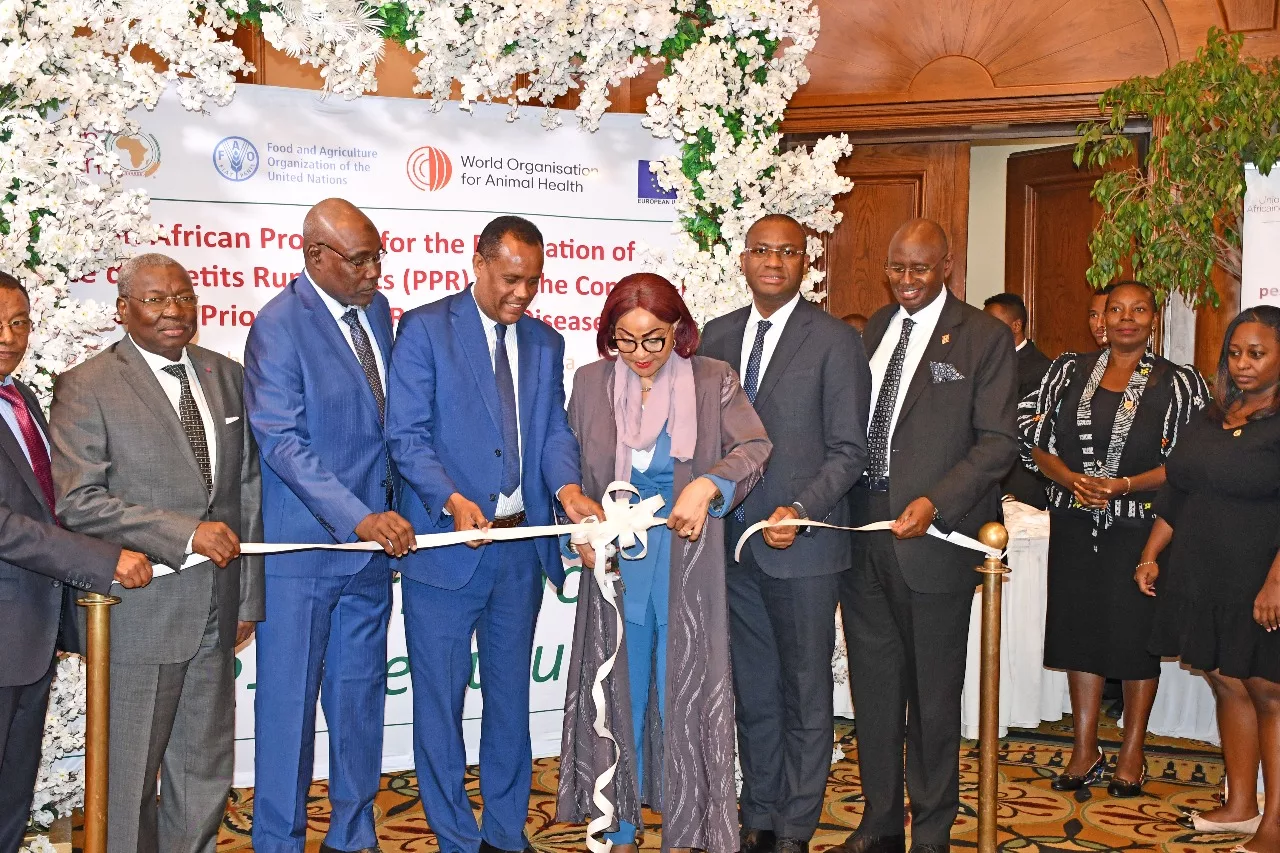|
Getting your Trinity Audio player ready...
|
The continent is still not exploiting the full potential of its animal resources, largely because it is failing to fully utilise the opportunities available and address key challenges such as animal feed and health, African Union Commissioner Josefa Correia Sacko said in Addis Ababa.
The diplomat, who was speaking at the launch of the Pan-African Programme for the Eradication of African Small Ruminant Pests, stressed that most African countries continue to face difficulties in achieving an adequate level of food and nutritional security for a constantly growing population, while sustainably preserving natural resources.
According to her, one of the solutions to this major challenge lies in the animal resources sector, in particular livestock farming, which is a crucial means of subsistence for Africa’s rural populations and is of great strategic importance for the continent’s food and nutritional security and for intra-African and international trade.
She emphasised that in the absence of an increase in livestock production and productivity, the growing demand for food of animal origin will be met through an increase in livestock import bills for many African countries.
In addition, she said, the failure to transform and expand the African livestock sector will have undesirable effects, such as slowing the growth of local industries, a lack of job opportunities, especially for young people and women, a reduction in the income of African pastoralists and a loss of tax revenue.
“Therefore, by investing in sustainable livestock production, we are not only boosting local economies, but also promoting entrepreneurship, especially among our youth and women, and reducing rural-urban migration,” warned the AU Commissioner.
According to the ambassador, the African livestock sector contributes, on average, at least more than 40 percent to agricultural GDP and has the potential to generate growth driven by the agri-food system and socio-economic transformation.
“As a continent, we need to change this narrative and catalyse investment from both the public and private sectors, in line with the Kampala declaration and CAADP’s strategy and action plan to realise the aspirations of Agenda 2063, the ‘Africa we want’,” she said.
In her view, to turn the existing situation around, the high priority given to eradicating small ruminant pests in Africa will contribute significantly to the main objectives of Agenda 2063, in strengthening food security and economic growth and promoting regional integration through safe trade in animals and animal products.
According to the AU Commissioner, from the projections made, the eradication of this disease requires an estimated budget of 528 million euros to carry out the programme, which will require the collaborations, partnerships, and coalitions of all stakeholders to mobilise the resources.
“At this juncture, let me recognise and appreciate the commitment of the European Union Commission to make 100 million euros available for the eradication of this plague. I am pleased to report that 8 million euros have already been released for the preparatory phase of the programme,” she said.
According to figures from the African Union’s Inter-African Bureau for Animal Resources (AU-IBAR), Africa has around one billion sheep and goats, which represents 24 percent and 31 percent of the world’s small ruminant population, respectively. Most small ruminants on the African continent are raised mainly in arid and semi-arid zones and constitute a crucial asset and safety net for the poor, especially for women and pastoralist groups, who are vulnerable to socio-economic shocks.
However, their production and productivity are mainly jeopardised by small ruminant pests, a deadly sheep and goat disease with major socio-economic and commercial impacts.






